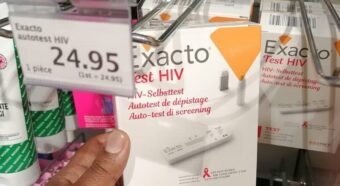Enhancing Financial Management Compliance in Namibia Grant Implementation
- October 19, 2023
- HIV/AIDS / Malaria / Tuberculosis
- By Paul Nesara
- Read in French

Background
Namibia has made significant progress in the fight against HIV, TB and malaria (HTM). By the end of 2022, it had achieved 92-99-93 towards the UNAIDS 90-90-90 targets. With significant progress being made toward the eradication of malaria, both the incidence and mortality rates of TB were also declining. Click & Tweet! Due to the dedication of the national leadership, half of the HTM funding has been provided by the government since 2021, with the other half coming from cooperating partners. The Ministry of Health and Social Services is the Principal Recipient (PR) of resources from the Global Fund. Despite the incredible progress, the Office of the Inspector General (OIG) findings highlight financial management and compliance issues, suboptimal CCM and Principal Recipient’s oversight, and underperforming community interventions as areas that require attention. This article focuses on compliance as an integral part of financial management.
Compliance of financial management
Namibia is facing grant compliance challenges on its financial management system. The OIG’s findings identified weaknesses in financial management and reporting that might potentially affect the accuracy of the financial data that is generated. Additionally, the grant accounting system used by the PR to produce complete financial statements is ineffectively used, and the accounting system is improperly setup. The possibility of contrived data entering the accounting system is increased by the observation of incomplete financial statements and gaps in the accounting system.
The audit also discovered local procurement procedures that were not being followed, endangering the openness and fairness of all procurement procedures. Numerous local procurements did not adhere to certain rules outlined in the Public Procurement Act. The procurement procedure had delays, taking an average of 141 days as opposed to the 90 days mandated by the Procurement Act. Additionally, the PR does not run background checks on its suppliers and does not maintain a list of pre-qualified vendors.
The Importance of compliance
Compliance with financial management regulations is essential and the foundation for tracking all program-related expenses, including payments for outreach efforts, services purchased, and other expenses. The extent to which compliance issues permeated the PR’s finance management systems and expanded to other disease projects not supported by the Global Fund was not reported. One can only assume that comparable issues might need to be addressed from the standpoint of strengthening health systems. Therefore, it demands that accountability frameworks be enhanced and that compliance issues be reviewed and strengthened in National Strategic Plans each time grant applications are submitted. The ongoing assessment of the system will ensure that compliance processes are improving over time and filling up any holes that might have been found during deployment.
The nature of financial transactions is becoming more international in today’s connected globe. Funds transfers are now more frictionless than ever thanks to cross-border transfers and digital payment platforms. Procurement of medicines, laboratory equipment, consultancy fees, and payment for other consumables to enable them to get to where they are needed most can be challenging. In order to make sure that contracts are given to people or institutions who deserve them, procurement actually necessitates transparency and accountability along the service chain. Compliance and other control measures are crucial at each level of the financial transaction to prevent potential financial crimes, fraud, and money theft. As the OIG correctly notes, weaknesses in information technology in any accounting system can permit data modification, which opens the door to fraud possibilities.
Teams tasked with monitoring grant compliance examine a substantial amount of transactional data in order to spot irregularities and potential crimes. The sheer amount of transactions can be overwhelming, which increases the likelihood of false positives and the workload associated with evaluations. To improve the effectiveness and efficiency of transaction monitoring, it is necessary for countries with the support of the Global Fund to apply advanced analytics tools, machine learning algorithms, and automation techniques. The PRs/SRs can streamline the review process, minimize false positives, and focus on looking into high-risk transactions by utilizing technology. Additionally, during program installation, random transaction monitoring can find hidden practices and help ensure possible problems are quickly detected and handled.
Some opportunities for the Global Fund to capitalise on
Financial control issues have come up in several of the awards provided by the Global Fund. The Global Fund may then need to continuously increase PRs’/SRs’ ability to adapt to a changing financial environment and ensure grant recipients are aware of any updates to compliance requirements, evaluate the robustness of their current systems and processes, and make the necessary adjustments. It might entail establishing a dedicated country support finance team to engage with PRs/ SRs continually to improve financial vigilance, gather and analyse financial data, and offer grant compliance teams extra training. Riding on OIG findings, the Global Fund country teams may consider creating a system that cascades best practices to all other recipients, including those not yet audited.
Paul Nesara


